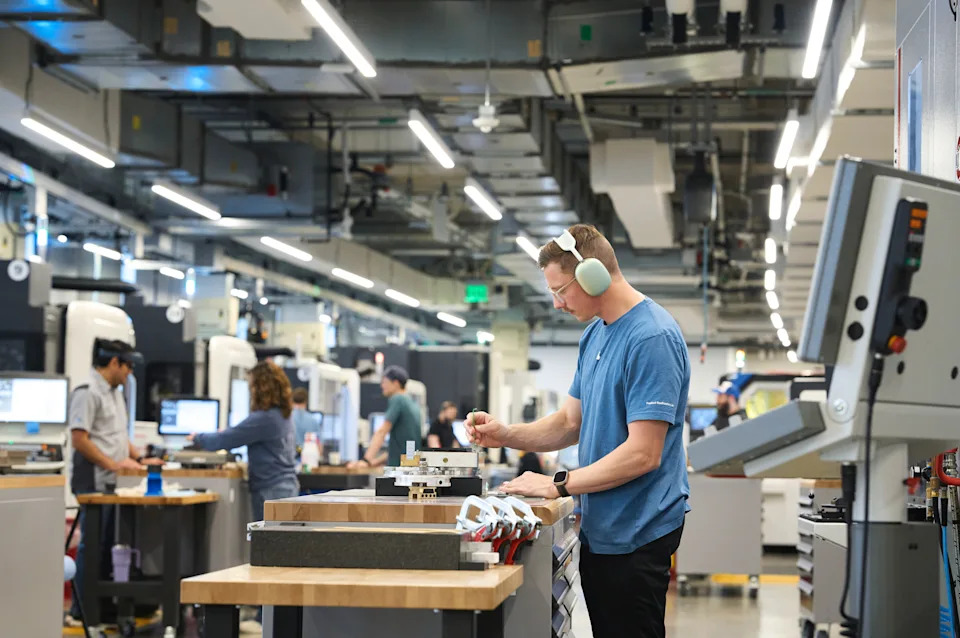
Apple announces additional $100 billion in US investment, following Trump iPhone tariff threat
Key Points
- Apple's $100 Billion Investment: Apple announced an additional $100 billion investment in US manufacturing, building on its prior $500 billion commitment, during a White House event with President Trump.**
- American Manufacturing Program (AMP): The investment includes the launch of AMP, aimed at incentivizing global companies to produce critical components in the US, with partners like Corning, Coherent, and Broadcom.**
- Specific Partnerships: Apple is committing $2.5 billion to produce cover glass for iPhones and Apple Watches at Corning’s Kentucky facility and partnering with Coherent for Face ID lasers.**
- End-to-End Silicon Supply Chain: Apple is establishing a comprehensive US silicon supply chain, sourcing wafers from GlobalWafers, collaborating with Applied Materials, and working with Samsung and Texas Instruments on chip technologies.**
- Response to Tariffs: The announcement follows pressure from the Trump administration, including threats of a 25% tariff on iPhones, amid existing and upcoming tariffs on goods from India.**
Summary
Apple unveiled a significant $100 billion investment in US manufacturing during a White House event with President Trump, adding to its previous $500 billion commitment. This initiative includes the American Manufacturing Program (AMP), designed to encourage global firms to produce critical components domestically, partnering with companies like Corning, Coherent, and Broadcom. Key projects involve a $2.5 billion commitment with Corning for iPhone and Apple Watch glass production in Kentucky and collaborations for Face ID lasers and semiconductor technologies. Apple is also building an end-to-end US silicon supply chain with partners like GlobalWafers and Samsung. The move comes amid pressure from the Trump administration, which has threatened a 25% tariff on iPhones not manufactured in the US, alongside existing and new tariffs on goods from India, where Apple assembles many iPhones for the US market. Despite the announcement, industry experts highlight challenges like a lack of skilled workers and supply chain resources in the US, suggesting that building an iPhone plant domestically could take years. Apple's stock rose over 2% following the news, reflecting market optimism about its domestic manufacturing push, even as the company faces significant tariff-related costs, with an $800 million hit reported recently and $1.1 billion more anticipated.
yahoo
August 7, 2025
Stocks


